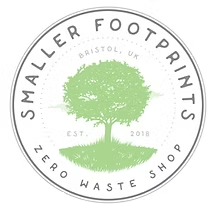First uploaded 24th July 2024
I recently made a visit to Matt’s (aka Muti) kitchen and observed in action his mission to bring “microbes to the masses”.
The nickname Muti has been with Matt since his childhood in South Africa, where muti is a word used for medicine and ancient practises that harness nature to promote vitality. His nickname turned out to be the perfect name for his brand of sauces and ferments, with their increasingly understood beneficial effects.
Quickly, Muti expressed his intense dislike for processed food. He tells me that so many health issues are caused by having too many processed foods in our diet, which is why his aim is to sell fermented, real food to support our gut health, rather than destroy it. His kimchi includes 7 different types of vegetables, so aside from the fermentation the pure diversity is great for your gut microbiome (click here to learn more about fermented foods and gut health).
Matt is trained as a professional chef and has created his take on kimchi, sauerkraut and hot sauces, all fermented and flavoursome. He started out selling only hot sauces, replacing the usual vinegar with the acidity of fermented food, which he says allows the flavour of the ingredients to shine through rather than being overpowered by the flavour of vinegar. He then expanded to kimchi and sauerkraut when the demand came for more fermented foods.
He uses a process called lacto-fermentation, so-called because of the lactic acid-producing bacteria that drive it. Within this, he creates a salty, oxygen-free environment in which these beneficial bacteria, which are present in all fruit and vegetables, can thrive. They eat the natural plant sugars and convert them into lactic acid, which is a natural preservative, more rounded and mellow than vinegar. Once all the veg is prepared, salted and mixed thoroughly, he puts it into airtight containers to ferment. He knows it’s working when the bubbles of CO2 start to appear, which means that the lactic acid is reproducing. He puts it in the fridge before the fermentation process gets too far along, which results in a less acidic product than others on the market. He says this is because he wants as many people as possible to include fermented, whole foods in their diet.
He tries to create as little waste as possible by composting the food scraps, implementing a circular economy with his glass jars and selling his kimchi brine to people on certain diets who want the live bacteria without the fibre. He sources all his produce from a greengrocer on Gloucester Road called Pawson’s and tries to keep his veg supply as local as possible, although this isn’t possible with the Chinese leaf cabbages used in his kimchi, which is not present in his krauts and hot sauces. He is soon to release his Kimchi 2.0, which is crunchier, uses a more local cabbage and has more chilli and ginger.
So, where can you buy Muti products? Here at Smaller Footprints, our fridge is always stocked with his kraut and kimchi. Alternatively, he offers a one-time delivery service, a subscription service and sells his products at Whiteladies Road Farmers’ Market every Saturday, where he also offers a kimchi refill. If a sufficient taste for it develops, we’ll start offering refill of the kimchi and sauerkraut. In the meantime, for the few of you that are already regulars to our fridge, please feel free to bring back your empty jars and we will find them a new home.
Lily



